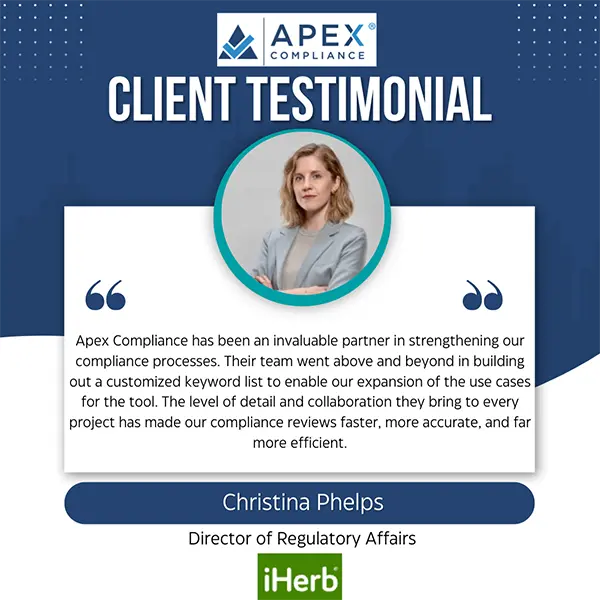
OTC Drug Website Claims
Websites are considered “labeling”
I am far from an expert in OTC products, but this warning letter also includes herbal extracts, which I find interesting. OTC drugs follow strict monographs that describe the type of claims that can be made and the active ingredient recipe that must be followed.
Here is the active ingredient definition from FDA, which essentially means that inactive ingredients cannot have a therapeutic effect: “Active ingredient means any component that is intended to furnish pharmacological activity or other direct effect in the diagnosis, cure, mitigation, treatment, or prevention of disease, or to affect the structure or any function of the body of humans.”
Website claims: This company added herbs as inactive ingredients but makes disease claims about them on their website. Aside from the directions, much of the actual label seems to be compliant, but statements made on websites are still considered labeling in the eyes of the FDA. This is a great example of how marketing statements can elevate the risk of scrutiny. Using software like my compliance program, Apex Compliance™, can help prevent companies from receiving these preventable actions.
From warning letter: “Hops adds a bitter flavor and is a stability agent. In herbal medicine, this plant is known to benefit conditions such as anxiety and insomnia…Passion Flower Is a climbing vine with beautiful flowers, and is recommended as a sedative and antispasmodic agent.”
FDA also references that if the product is used as directed, it exceeds the maximum suggested daily amount in the OTC monograph. I am far from a safety expert, but this probably pushed FDA to issue the warning letter.
Read the full warning letter here.

